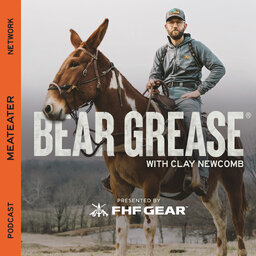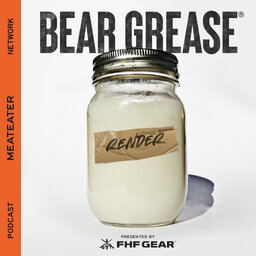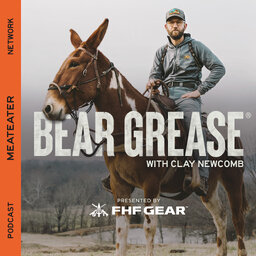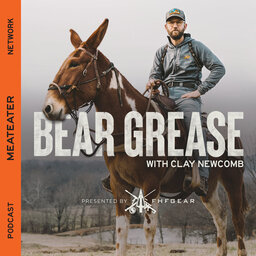Ep. 38: Ducks - Saving the Legacy of Green Tree (Part 2)
Hunting flooded timber in Arkansas for mallard ducks is why this place is known as the Duck Hunting Capital of the World. On this episode, Clay interviews the Arkansas Game and Fish Commission director, Austin Booth, and waterfowl biologist Luke Naylor about why the trees are dying in the Green Tree reservoirs of Arkansas. There are some big decisions to be made about how to save them. Clay also talks with Bobby Martin -- a commissioner of the AGFC -- about the legacy of habitat conservation that waterfowlers have in this country. This is the final episode in our series on duck hunting.
Connect with Clay and MeatEater
Clay on Instagram
MeatEater on Instagram, Facebook, Twitter, and Youtube
Shop Bear Grease Merch
Learn more about your ad-choices at https://www.iheartpodcastnetwork.com
In 1 playlist(s)
Bear Grease
Home to the Bear Grease podcast and Bear Grease Render show with Clay Newcomb, and This Country Life…Social links
Follow podcast
Recent clips

Ep. 410: Ty Evans - Transformative Mulemanship and Free Agency
51:16

Ep. 408: Render - Real Talk About Men's Health
1:21:04

Ep. 405: Revisiting Jerry Clower
1:04:38
 Bear Grease
Bear Grease